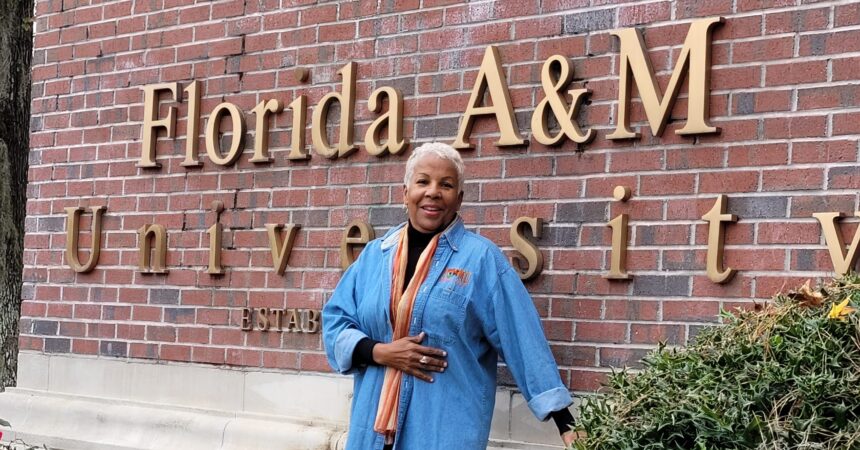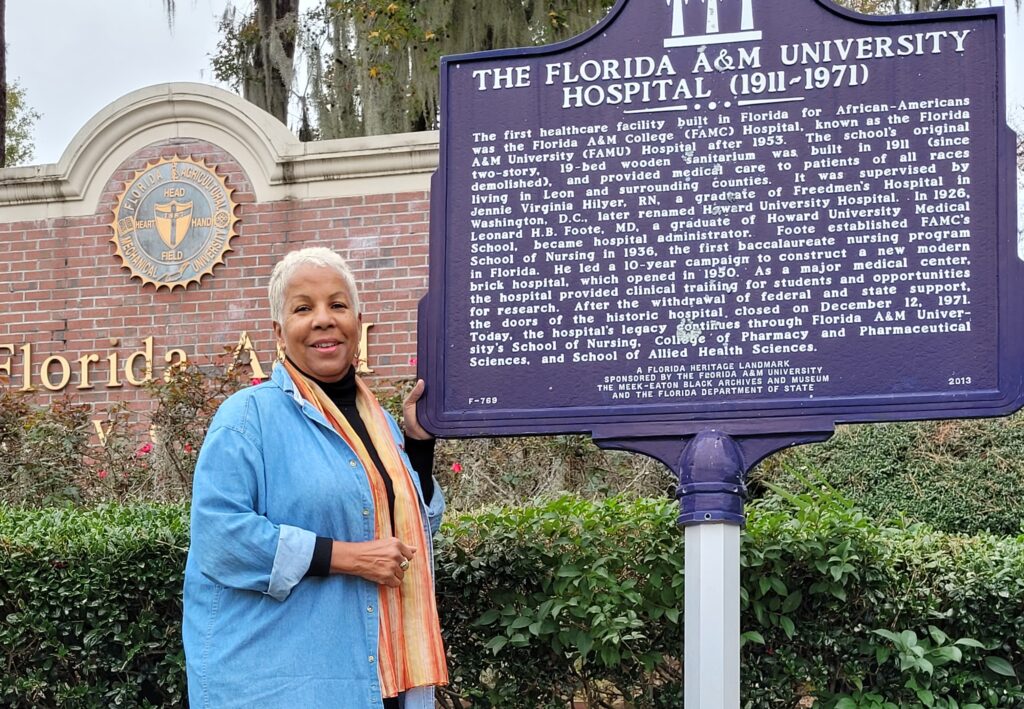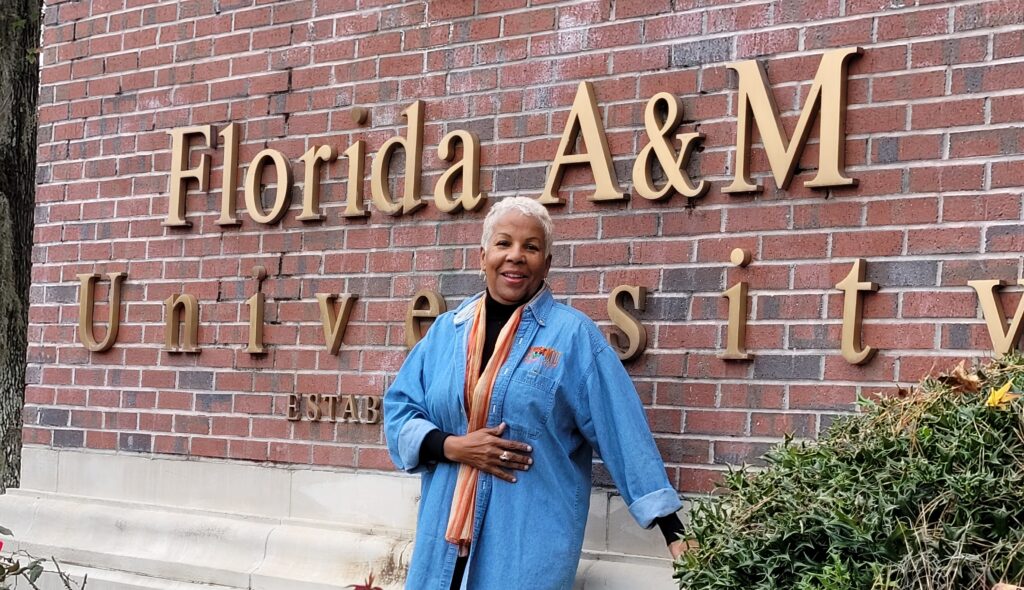
Smith is on a mission to locate ‘FAMU babies’

Photo by St. Clair Murraine

Photo by St. Clair Murraine

Photo by St. Clair Murraine
By St. Clair Murraine
Outlook Staff Writer
There are two markers near the Foote-Hilyer Administration Building that give a synopsis of what was once the FAMU Hospital.
Unless extensive research is done, details are hard to find about the kinds of healthcare services provided by the first hospital on the campus of a historically Black college.
That’s something that Shauna Smith, who grew up on FAMU campus, wants to change. She specifically wants to establish documentation on the names and number of babies born at the FAMU Hospital.
During the segregation era until about the mid 1960’s, Black Tallahassee mother who didn’t give birth at home did so at the FAMU Hospital. Smith believes that historical significance makes it important that she documents what she calls the birth of “true Rattlers.”
“I want to capture, embrace, celebrate, and commemorate the unique experiences of that hospital,” Smith said. “There is nothing to commemorate the uniqueness of us being born on a school campus that is predominantly Black.”
Smith, who was born at FAMU Hospital 69 years ago, said she hope to make significant strides enough to have a ceremony next year when the city will be celebrating its bicentennial. However, progress has been slow.
She has reached out to at least two nurses known to have worked at the hospital. She is also hoping that the university’s administration will join in the effort.
Since Smith launched the initiative to find babies born at the FAMU Hospital, about 40 individuals have responded on Facebook, she said. She has also found out that obtaining any official list of babies’ names will require going through state archives.
Those records would require a medical professional to make the request and it could be costly and time consuming. She also made a futile request of Tallahassee Memorial Healthcare, although it wasn’t offering service to Black during segregation.
That Smith has taken on trying to document the number of babies born at FAMU Hospital is commendable, said Larry Rivers, Ph.D. Rivers, a renowned history professor at FAMU, said the hospital was “the center of life within the Black community.”
“I think Shauna Smith is doing a commendable thing in terms of trying to identify the workings of this great hospital,” Rivers said. “The information needs to be told as a part of the African American experience in Leon County and the state of Florida.
“This is significant African American history that needs to be written about, talked about so that young generations will know that during a very tough period in American history Blacks emerged to be some of the best healthcare delivers in the state of Florida. I think what she is doing is significant.”
Thousands of the babies born at the FAMU Hospital are believed to have been delivered by Dr. Alexander Brickler. He recently died at age 94 and has delivered more than 30,000 babies.
Smith’s ties to FAMU are deeply rooted. Her father, Charles Smith, Ph.D., was a sociology professors at FAMU where her mother Marolyn Smith was a physical education professor.
Rivers said her father’s involvement in the civil rights movement validates her mission. Being born at the FAMU Hospital also makes it meaningful, he said.
“I feel very special,” Smith said of being someone born in the FAMU Hospital. “Both of my parents were very involved in civil rights on the local level and international level. Knowing that if it were not for the FAMU students who were willing to risk their college careers, their livelihoods, maybe even a jail record in order to effectuate civil rights changes in this city, is so moving to me.”
Although the structure was built years earlier, the FAMU Hospital wasn’t dedicated until 1951. It served predominantly Black patients, some coming from Georgia and South Florida, until 1971.
Smith estimated that the youngest FAMU babies are in their late 40s or early 50s. She hopes the ones who have responded on social media will lead to others.
“I’m very passionate about it and will do everything I can to make sure there is an appropriate honoring,” said Smith who attended Lucy Moten before it became FAMU High. “Even if we cannot get the babies here, which would be ideal, we have to make sure there is some official, permanent record of the significance of not only the babies. This was a fully functional hospital.”







